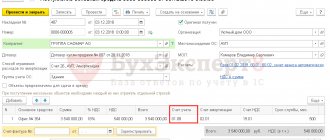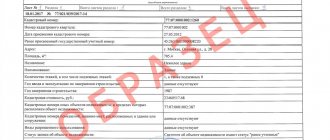How does the registration procedure work?
To register ownership rights you will need a number of documents
.
Required documents
In order to register ownership rights to property that was taken out on a housing loan, you need to provide the following documentation
:
- identity document of the seller and buyer;
- a statement in the prescribed form from the participating parties;
- payment paper indicating payment of state duty;
- PrEP;
- documents provided by the seller for the property;
- collateral paper;
- cadastral passport for housing;
- certificate from the house register;
- a document stating that there is no debt for utility services;
- consent of the board of trustees, if one of the persons owning the alienated apartment is a person under the age of majority;
- consent of the second spouse, certified by a notary. Necessary when housing is joint property.
Where to contact?
When the documents with the bank are completed, you should contact Rosreestr at your place of residence.
Step-by-step instruction
When registering property rights, you need to follow a certain algorithm of actions.
Step 1
Find out which authority you need to contact to register. All information can be found on the Rosreestr website.
Step 2
Preparation of documents. It is recommended to first consult with the registrar, since the package of documents may differ depending on the situation.
In addition, some documents have a limited validity period, so receiving them ahead of time is not recommended.
Step 3
Payment of the registration fee. The procedure can be carried out at any government agency that accepts payments of this kind, or through terminals.
Step 4
Clarification of the order in which documentation is submitted. In queue by appointment and in electronic queue.
Step 5
Visiting relevant authorities and submitting documents. After accepting the documentation, the responsible employee informs you of the date when registration will be completed. If there is a need to provide additional documentation, it is necessary to deliver it and continue the registration procedure.
Step 6
The final stage is entering data into the state. real estate register
.
For new buildings
In a new building, the registration procedure differs in that an agreement for participation in shared construction is concluded, and not a document indicating the act of purchase and sale. That is why this procedure will take place only after construction is completed.
In this case, two options are offered:
- seek the services of a developer;
- register ownership of the apartment yourself.
In the first option, the developer is responsible for submitting documentation to the state register. After the expiration of the registration period, the shareholder can legally become the copyright holder.
The disadvantage of this method is the length of registration, since there are a large number of shareholders, and papers can be submitted in order.
In the second case, when the home buyer independently prepares important documents on his own, he needs to obtain certain documentation from the developer. Namely:
- those. passport for the object, which is registered in the BTI;
- a document confirming permission from the city government to put the house into use;
- deed of transfer, which is signed by GASO;
- cadastral passport of the object;
- a document that confirms the assignment of a postal passport and index to the new building.
When applying to the unified state register, you must provide the papers received from the developer and an agreement confirming equity participation.
For secondary housing
The usual package of papers with the pledge agreement is provided to the registry. A record must then be made indicating that ownership has been transferred. Afterwards, the borrower receives the status of owner, with limited right of disposal.
Having repaid the mortgage, the borrower must bring a package of documentation to Rosreestr, which confirms this, as well as an identification document
For military mortgage
Housing becomes the property of the serviceman. Registration of ownership rights occurs according to the standard scheme, followed by registration in the State RosReestr. Upon completion of the process of registering ownership of the property, the seller is awarded the money.
The only difference between a military mortgage is that the housing is secured not only by the bank that issued the mortgage loan, but also by the Ministry of Defense. When the mortgage is fully paid off, the encumbrance will be completely removed. In the event of early dismissal of a serviceman, the debt to the mortgage bank is paid by the state.
Transfer of rights to real estate in connection with reorganization
This article discusses the legal provisions and features of registration in the Rosreestr of the transfer of rights in relation to real estate, in connection with the reorganization of a Closed Joint Stock Company (hereinafter CJSC) through a merger with a Limited Liability Company (hereinafter LLC).
Thus, the reorganization of a legal entity (merger, accession, division, separation, transformation) can be carried out by decision of its founders (participants) or a body of the legal entity authorized by the constituent document (clause 1 of Article 57 of the Civil Code of the Russian Federation).
In accordance with paragraph 4 of Art. 57 of the Civil Code of the Russian Federation, a legal entity is considered reorganized, with the exception of cases of reorganization in the form of merger, from the moment of state registration of legal entities created as a result of the reorganization. Similar provisions are contained in paragraph 2 of Art. 16 of the Federal Law of 08.08.2001 No. 129-FZ “On State Registration of Legal Entities and Individual Entrepreneurs” (hereinafter referred to as the Law on Registration of Legal Entities and Individual Entrepreneurs).
According to paragraph 1 of Art. 58 of the Civil Code of the Russian Federation, upon the merger of legal entities, the rights and obligations of each of them are transferred to the newly emerged legal entity.
In cases provided for by law, rights establishing the ownership of an object of civil rights to a specific person, restrictions on such rights and encumbrances on property (rights to property) are subject to state registration. State registration of rights to property is carried out by an authorized body in accordance with the law based on the principles of verifying the legality of the grounds for registration, publicity and reliability of the state register. The state register must contain data that allows one to definitely establish the object to which the right is established, the authorized person, the content of the right, the basis for its emergence (clause 1 of Article 8.1 of the Civil Code of the Russian Federation).
According to clause 2 of article 8.1 and clause 1 of article 131 of the Civil Code of the Russian Federation, articles part 3, 6 of art. 1 of the Law on Real Estate, ownership and other real rights to real estate, restrictions on these rights, their emergence, transition and termination, as well as transactions with it, subject to state registration, arise, change and terminate from the moment of state registration by the authorities carrying out state registration rights to real estate and transactions with it and making a corresponding entry in the Unified State Register, unless otherwise provided by law.
Legal capacity, namely the ability to have civil rights corresponding to the goals of the activity provided for in the constituent document, and to bear the responsibilities associated with this activity, of a legal entity arises from the moment information about its creation is entered into the Unified State Register of Legal Entities and terminates when information about its termination is entered into the specified register (Clause 1, 3, Article 49 of the Civil Code of the Russian Federation).
Clause 2 of Article 218 of the Civil Code of the Russian Federation states that in the event of reorganization of a legal entity, ownership of the property belonging to it passes to legal entities - legal successors of the reorganized legal entity
That is, during the reorganization of a legal entity in the form of annexation, the rights and obligations cease, including in relation to real estate, the acquired legal entity, and in the order of universal legal succession, the rights and obligations of the newly reorganized legal entity to which the annexation took place arise.
Since legal succession during reorganization in the form of annexation is universal, the rights to real estate are transferred to the reorganized legal entity, along with other rights. Moreover, in these cases, the moment of transfer of the right to property is associated not with the moment of state registration of rights to real estate, but with the moment of completion of the corresponding registration actions in the Unified State Register of Legal Entities by the body that registers legal entities and the moment of completion of the reorganization.
At the same time, the norms of Art. 84 of the Law on Real Estate imposes the obligation to provide the Department with documents that are the basis for state registration of the declared right on the applicant, except in cases provided for by law (the documents necessary for its implementation must be attached to the application).
Clause 8 of Art. 14 of the Real Estate Law establishes that the grounds for state registration of the presence, origin, termination, transfer, limitation (encumbrance) of rights to real estate and transactions with it are, among other things, other documents provided for by federal law, as well as other documents that confirm the existence, emergence, transition, termination of rights or restrictions on rights and encumbrances of real estate in accordance with the legislation in force at the place and at the time of the emergence, termination, transfer of rights, restrictions on rights and encumbrances on real estate.
It should be noted that in the case under consideration, the moment of emergence of the ownership right to real estate objects in the LLC is associated with the moment of completion of the reorganization and making the corresponding entries in the Unified State Register of Legal Entities, then the grounds for registering such a right in the Unified State Register of Legal Entities are the documents submitted during the implementation of registration actions by the tax authority when making registration entries in the Unified State Register of Legal Entities.
The procedure and features of state registration of legal entities, state registration of changes made to the constituent documents of a legal entity and the introduction of changes to information about a legal entity contained in the Unified State Register of Legal Entities carried out in the event of reorganization, as well as the entry into the Unified State Register of Legal Entities of other entries in connection with the reorganization of legal entities, are regulated provisions, among other things, of Chapters V and VI of the Law on Registration of Legal Entities and Individual Entrepreneurs.
In addition, from the contents of paragraph 3 of Art. 17 of the Law on Registration of Legal Entities and Individual Entrepreneurs it follows that when a legal entity is reorganized in the form of a merger into a registration authority at the location of the legal entity to which the merger is being carried out, an agreement on merger must be attached to the application for making a record of the termination of the activities of the merged legal entity and deed of transfer.
By virtue of paragraph 1 of Art. 21 of the Law on Real Estate necessary for state registration of rights Documents establishing the existence, emergence, transition, termination, limitation of rights and encumbrance of real estate and submitted for the implementation of state cadastral registration and (or) state registration of rights must comply with the requirements established by the legislation of the Russian Federation, and reflect the information necessary for state cadastral registration and (or) state registration of rights to real estate in the Unified State Register of Real Estate. These documents must contain a description of the real estate and, unless otherwise established by this Federal Law, the type of registered right; in cases established by the legislation of the Russian Federation, they must be notarized, certified by seals, and must have the appropriate signatures of the parties or officials determined by the legislation of the Russian Federation.
At the same time, it should be noted that the deed of transfer must be certified by a seal, and also contain the real estate objects declared for state registration.
With or without trial?
By a court decision, the process of registering property rights may be suspended. Documents may be delayed for 1 month. This is the maximum permissible period, unless otherwise provided by law.
Refusal of registration is possible on the following grounds:
:
- if the applicant does not have rights to register property;
- if the documents are fictitious;
- provided there are no additional certificates or documents;
- subject to repeated registration of the same immovable property by different persons;
- subject to judicial seizure of housing;
- subject to the withdrawal of documents by one of the parties.
Terms and cost of registration
The legislature sets restrictions on the time of registration of ownership of mortgaged real estate. In the case of providing a complete package of documents, which must be completed correctly, the period is 10 days from the date of issuance of a receipt indicating that the necessary documentation has been received. In megacities, the period can be increased to 15 days. Provided that additional information is needed or controversial issues are discovered, then the period can be extended to 30-45 days.
The cost of registering an apartment as a property depends on each specific situation. Registration of a power of attorney for all registered persons by a notary will cost 1,000 rubles for each document.
The state fee for registering property rights will cost 2,000 rubles.
What has changed after the cancellation of certificates of registration of property rights
From July 15, 2021, in Russia, instead of a certificate of state registration of ownership rights to real estate, an extract from the Unified State Register of Rights to Real Estate and Transactions with It is issued. At the same time, certificates of state registration of rights that were issued before the specified date do not need to be changed. The basis for the cancellation is the amendments made to the Federal Law “On State Registration of Rights to Real Estate and Transactions with It.”
Real estate transactions have become safer. The certificate did not provide the buyer with full assurance that the seller actually had ownership rights to the property. A paper certificate can be falsified, and therefore there has always been a risk of becoming a victim of fraudsters. In addition, even in an authentic certificate, the information may be out of date. For example, if encumbrances have arisen in the ownership since the moment of its receipt.
The opportunity to receive extracts from the Unified State Register has existed for several years. However, not everyone knew about it; many continued to traditionally use information from certificates of ownership when making a transaction.
Certificates of state registration of rights that were issued before July 15, 2021 do not need to be changed. These documents confirm the fact of registration of the occurrence and transfer of rights on the date indicated in them as the date of issue.
In general, in the work of neither lawyers, nor realtors, nor in the actions of citizens in real estate transactions, nothing has changed from changing the form of the document certifying ownership.
An extract is a document confirming the relevance of information about the property. The document certifies that on the date of issue indicated in it, a certain person has registered the right to a specific piece of real estate, about which a registration entry was made in the Unified State Register on the corresponding day under the corresponding number. The extract is valid indefinitely, but records the state of affairs with the registration of rights to the property exactly on the date of issue.
The document can be obtained both in paper and electronic form. The cost of an extract from the Unified State Register in paper form for individuals is 200 rubles, for legal entities - 600. In electronic form - 150 and 300 rubles, respectively.
Cancellation of the issuance of certificates of state registration of rights does not change the terms of provision of services for registration of rights - up to 10 working days. Documents for registration can also be submitted electronically, contact the MFC or the offices of the Federal Cadastral Chamber.








